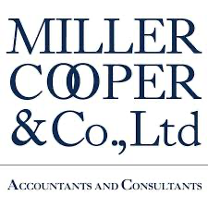Support your clients, your team (and yourself!) through 2021
Updated 13th January 2025 | 4 min read Published 25th January 2021

As the profession seeks to support clients continuing turmoil the pressure mounts on individuals working in accountancy and bookkeeping practices. James Kilford, founder of Senta, explores how to build an anti-burnout plan for your practice.
A very different year
Navigating self-assessment season is an exhausting period in any normal year for the accountancy profession. This time around it is very different.
In the UK, we’re ten months on from the first Covid lockdown, with months of further restrictions ahead. Practices have fought fires on behalf of clients, while their leaders have looked to support their team and help employees with the setting up of a new home office.
There are also logistical difficulties for your clients arising from the end of the Brexit transition period thrown into the mix for good measure.
For a managing partner or practice owner, there are understandable and very real worries about you, your team, and clients’ stamina and health (whether mental or physical) for the tough weeks ahead.
Managing mental health
I don’t profess to be all-knowing when it comes to how to manage mental health. But what I understand as a manager of people is that it’s my responsibility to help and support people all the time. The discussion about managing or improving health tends to focus on what needs to happen outside of the workplace.
In relation to their employment, it’s always about providing time off or recuperative guidance. But surely the business’s strategy and direction, and subsequent workflow and processes are central for consideration – and provides a potential solution.
My point is: the upshot of having an accounting practice that runs smoothly, efficiently and with good communication, will help create a more rewarding and less stressful working environment.
Working remotely and centralising client management
Peter Watkins, who runs Blue Penguin Chartered Accountants, uses Senta’s practice management software to help coordinate and run his firm.
He spoke to us about the importance of centralising client management, particularly when you have team members working remotely. Having employees working from home and looking after kids in lockdown means there is a great deal of stress attached to finishing off client work. But through Senta, anyone on the team can catch up very quickly with an ongoing job – taking it on where required.
“I can see the workflow and say: It’s coming up to the deadline, let me take it off your hands,” explains Peter.
“When I worked in a larger firm I had a jobs list for me – others didn’t know what I was doing until the manager would have a weekly catchup. But now I can even see where a client has had email correspondence with another team member.”
Making the switch
For practice leaders though, the idea of making improvements, switching software or re-engineering processes is a frightening thought. There are ramifications for team members and clients. The planning is difficult, too, when you are so busy (and have been for many months) – it will certainly feel like a Catch-22 for many practitioners.
But I believe that making improvements in how your firm works is virtuous; you can make good gains quickly without turning everything upside-down.
Peter read Michael Gerber’s classic business book ‘The E-Myth’ while on holiday last February, pre-lockdown. The book outlines how a small business owner must think like an entrepreneur rather than someone who excels in a craft or as a trader. Importantly, it broaches systemisation of an organisation – even a small one.
“When I came back I had the energy to systemise everything, even in my small, young practice that was cloud-focused and lean.”
Peter described to us how he used Google Forms to create a ‘new starter’ form to be filled in if one of his clients has a new staff member that he needs to know about. He has used Senta to create reminders about reminders to arrange clients’ furlough claims. Automated reminders are now in place to nudge clients towards providing details for their tax return.
For practitioners and their team facing burnout, using technology to simplify things doesn’t need to be difficult. We talk about being more efficient and improving client communication so you can become a better – and therefore more valuable and potentially more profitable – accountant.
But, with everything else taken into account, wouldn’t it be great to free up ten minutes here, 15 minutes there, use fewer Post-It notes every week, and make you and your people’s working lives a bit easier… less stressful or exhausting?
Try Senta free for 30 days here.
James Kilford is founder and CEO of Senta




